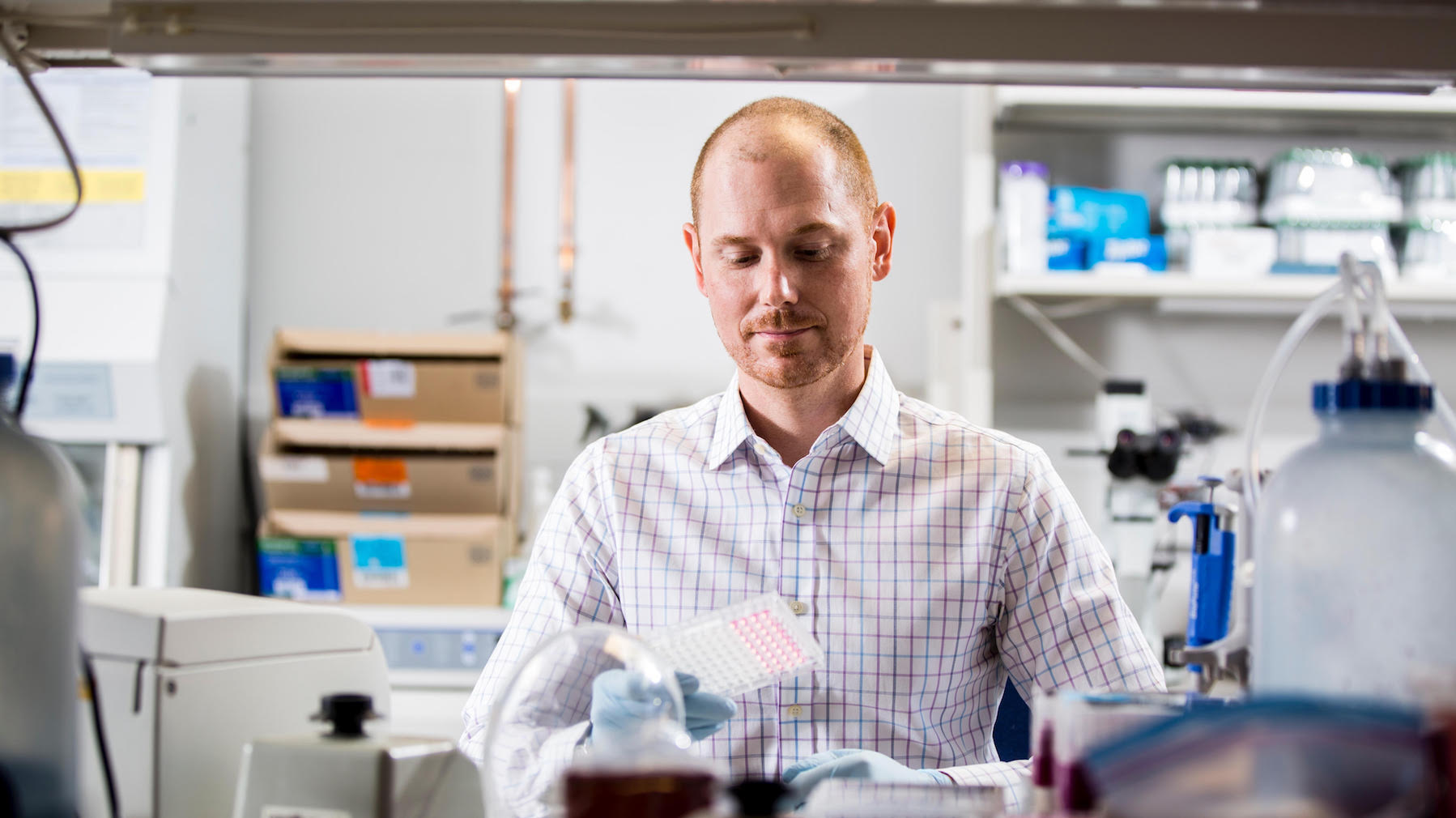The U.S. Department of Veterans Affairs has awarded $1.2 million to an Oklahoma Medical Research Foundation physician-scientist to investigate the connection between the gut microbiome and osteoarthritis of the knee.
The four-year grant awarded to Matlock Jeffries, M.D., will also allow him to study whether aging and obesity cause changes to the microbiome within knee cartilage.
The human microbiome is composed of billions of tiny organisms called microbes that are both helpful and potentially harmful. Scientists increasingly suspect the microbiome to be a key player in numerous medical conditions, including osteoarthritis (OA).
“Traditionally, we thought the microbiome was just in your gut and that the vast majority of the microbiome consisted of bacteria in your gut,” Jeffries said. “But recently, we discovered that if you take a mouse with no microbiome and give it gut microbiome, within 48 hours, you see bacterial traces from that microbiome in the mouse’s cartilage.”
OA is a leading cause of disability among veterans and is more prevalent among veterans than civilians. The incidence of OA increases with age and obesity. According to the Centers for Disease Control and Prevention, OA affects more than 32 million U.S. adults, including an estimated 35% of veterans. It occurs most frequently in the knees, hips and hands.
Jeffries, a board-certified rheumatologist who treats patients in OMRF’s Rheumatology Research Center of Excellence, said previous studies have shown that obesity-related OA in mice can be reduced through dietary changes that reshape the microbiome.
He hopes to discover whether age- and obesity-related changes in the gut microbiome of humans with OA are reflected in similar changes in the cartilage microbiome. His experiments will involve examining cartilage donated by patients with advanced osteoarthritis undergoing total knee replacement.
OMRF’s chief clinical officer, Judith James, M.D., Ph.D., called Jeffries’ research “extremely important.”
“Osteoarthritis already is a major cause of disability in the U.S., and its prevalence continues to rise,” said James, who holds the Lou C. Kerr Chair in Biomedical Research and leads OMRF’s Arthritis and Clinical Immunology Research Program. “Dr. Jeffries’ findings potentially could open a new avenue for research into the connection between aging and OA, and perhaps a new OA treatment strategy.”
Jeffries said if his experiments find that bacterial products in the microbiome induce cartilage changes that lead to OA, scientists can then focus on how to return the microbiome to its original state.
“If we’re successful in doing that, maintaining the microbiome in its original state would almost certainly require permanent lifestyle changes, particularly to your diet,” he said.
Jeffries’ research is funded by VA Merit Award 101CX002494.



